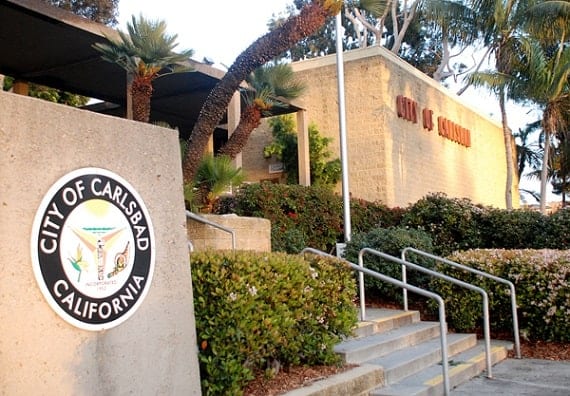The City Council decided to put $9.1 million in savings from last year’s city budget into an “economic uncertainty” reserve fund so it can be set aside for a rainy day. The decision was part of a larger discussion about how to use a $16.3 million surplus from the fiscal year 2018-19 budget.
Reason for the discussion:
This year the City Council approved a General Fund surplus policy.
“Surplus” funds are created two ways – when approved spending during a given fiscal year is less than what was budgeted and when revenues during a given fiscal year are greater than approved spending.
Under the new policy, the city manager may approve spending of surplus funds for items costing $100,000 or less. Anything over that needs City Council approval.
The goal of the new policy is to make spending decisions about surplus funds more transparent and to give the City Council more control over surplus spending decisions.
Why the City budget has a surplus
Reasons why money might not be spent in a given fiscal year even though it was budgeted include:
Changes in the city’s workplan or priorities
Budget needs end up being less than anticipated
Staff finding efficiencies and other ways to reduce costs
A staff member leaves, and the position sits vacant for a period of time, resulting in salary savings
Projects and procurements aren’t completed with the fiscal year when they were budgeted
Previously approved spending
The list of major projects on the list include the following items previously approved by the City Council where the money was not spent before the end of the fiscal year on June 30.
Climate Action Plan, $111,721
This funding, which is part of an ongoing communication program aimed at reducing greenhouse gas emissions, was previously approved by the City Council but not spent. Çity staff plan to continue this work in the coming year, including a digital media campaign and video series.
Community & Economic Development business processes, $150,000
This project to update and document processes related to building, planning, and engineering permits was originally approved by the City Council in the 2017-18 budget. Due to staff vacancies and other competing priorities, it is not yet complete, so the money is being carried forward.
Fire engine outfitting costs, $160,000
The funding for the engine was approved in fiscal year 2018-19. Due to the specificity of the needs for the engine and the equipment that goes with it, the design phase took longer than anticipated and pushed into fiscal year 2019-20.
Community public art, $217,499
In fiscal year 2015-16, the City Council approved an ongoing appropriation of $100,000 for community art projects to be included in each annual budget. To date, city staff have not spent all of the money allocated. A new public art coordinator position was added to the 2019-20 budget, which will allow the Library & Cultural Arts Department to fully implement its plans for community art projects.
Housing Element Update, $335,000
By law, the City of Carlsbad General Plan Housing Element must be reviewed, updated and adopted by April 15, 2021. The plan lays out how Carlsbad will accommodate its required share of low income housing for the region from 2021-2029. The city couldn’t start the update until the regional association of governments, SANDAG, decided how many housing units Carlsbad would be required to include in its plans, and that process took longer than expected.
Vehicle Replacements, $2,099,000
Three vehicles previously approved by the City Council were not purchased by the end of the 2018-19 fiscal year. These include a fire ladder truck ($1,500,000), paint truck ($419,000) and a paver ($180,000).
New projects and needs
Surplus funds may be spent on new or unanticipated needs as long as they are “one time” spending, not an ongoing commitment to spending. These include:
Schulman Auditorium sound system replacement, $225,000
The current sound system in the library’s auditorium is 11 years old and needs to be replaced.
Police Officer Compensation, $1,798,400
The City Council approved a contract with the Carlsbad Police Officers’ Association on Sept. 10, 2019. Several of the negotiated items affecting salary and benefits were retroactive to Jan. 1, 2019. Since this agreement was still in the negotiation phase when the current fiscal year budget was adopted, a large majority of these impacts were not anticipated or included with the budget at the time of budget adoption.
Invasive species (Ward’s Weed) mitigation, $200,000
Ward’s weed is a highly invasive non-native plan that threatens native habitats and increases the risk of wildfires. Investing in aggressive control of this species will save a significant amount of resources in the future.
School crossing guards, $118,624
The city recently requested bids for school crossing guard services, and a new contract was approved by the City Council on Oct. 8, 2019. The cost has increased because the city has added 13 locations for crossing guards, and the hourly rate for crossing guards has increased.
Parks & Recreation Master Plan update, $250,000
The current Parks & Recreation Master Plan will expire in March 2020. To maintain the department’s national accreditation with the Commission for the Accreditation of Parks & Recreation Agencies the current Master Plan must be updated.
External legal counsel and expert services, as needed, $200,000
The city often has a need to use external legal counsel and expert services on specific legal issues. The City Attorney’s office budgeted $750,000 for these expenses, but based on projected needs, is adding $200,000.
Digitize paper copies of building plans and maps, $245,000
This project will make accessing these document easier for members of the public and city staff and free up physical space at the city’s Faraday Administration Center to house new staff. The cost is for hiring a contractor to perform the digitization services.
Safety Center heating/air conditioning system repairs, $320,000
Repairs are needed on the HVAC system at the Safety Center.
Items less than $100,000
The city manager approved $2.8 million in General Fund and $3.4 million in other funds on spending for items that cost $100,000 or less. These included items already approved by the City Council in the previous year’s budget and new items:
Audio-visual equipment upgrades
“Stop the bleed” kits the Fire Department will place at city facilities and elsewhere to be used in an emergency
A new safe routes to schools pilot program
Safety upgrades at city buildings
A school resource officer vehicle
Various apps and other technology to help staff work more efficiently and provide better service
A listing of all city manager approved requests is included in the staff report on the city’s website.
City staff did not recommend that all of the surplus budget be spent. Instead, staff recommended $9.1 million be set aside to start the accumulation of funds needed for a system to integrate all of the city’s financial, operational, reporting, human resources and other technology applications into a single seamless system, called enterprise resource planning or ERP system.
The City Council decided to instead set this money aside in a special fund to protect against future economic downturns and asked staff to come back for a discussion of the ERP project. City staff will update the resolution to reflect the change and bring it back at the next City Council meeting for approval.


















